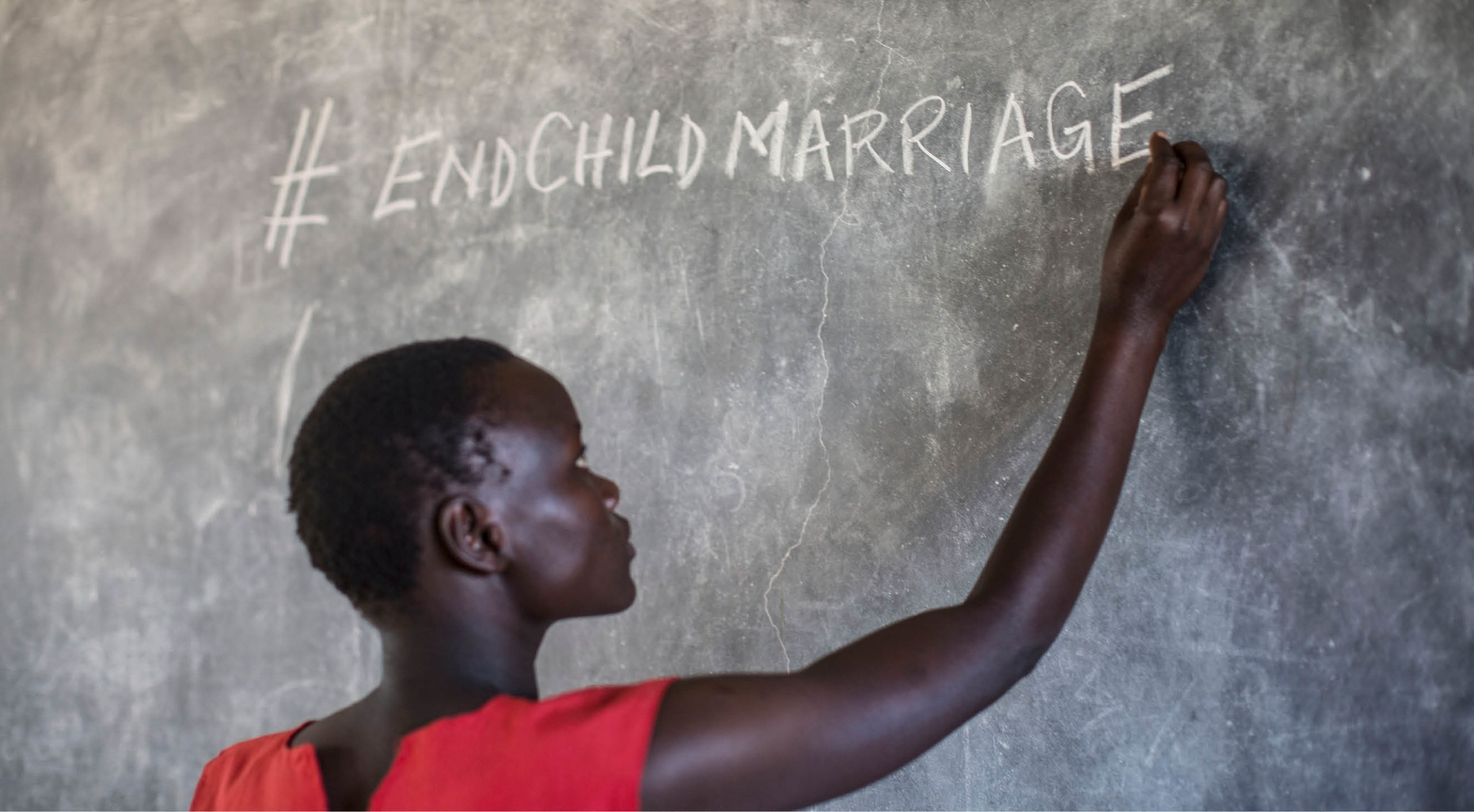ENDING CHILD MARRIAGE

Globally, 21% of girls are married before they turn 18, robbing them of their childhood.
Each year, another 12 million girls under the age of 18 are married around the world. Child marriage is globally recognized as a harmful practice and a human rights violation. However, despite laws against it, the practice remains widespread and can be found in cultures, religions, ethnicities, and countries around the world. Ending child marriage requires addressing, over a period of time, the complex sociocultural and structural factors underpinning the practice. As a result, the Global Programme to End Child Marriage was designed to address the issue over a 15-year period from 2015 through 2030. During this time, the priority remains on engaging adolescent girls as key agents of change in the following 12 countries with high prevalence of child marriage: Bangladesh, Burkina Faso, Ethiopia, Ghana, India, Mozambique, Nepal, Niger, Sierra Leone, Uganda, Yemen and Zambia.
HOW ZONTA HELPS
Zonta has supported ending child marriage since 2014, contributing US$2 million to delay early marriage in Niger from 2014-2018. From 2018-2020, Zonta contributed US$2 million to the UNFPA-UNICEF Global Programme to End Child Marriage – the first private-sector donor to the Global Programme. In 2020, Zonta International announced an additional commitment of US$1,500,000 to UNICEF USA to support Phase II of the Global Programme through 2022. Overall goals of Phase II include:
- Elevating the voice and agency of adolescent girls.
- Increasing resources and opportunities for adolescent girls and their families.
- Enhancing legal and political action to prevent child marriage and to support married, divorced or widowed adolescent girls.
EXPECTED OUTCOMES FOR THE YEARS 2020-2022
- Marginalized adolescent girls improve their knowledge, skills and attitudes on their rights, relationships, sexual and reproductive health, and financial literacy, including in humanitarian contexts.
- Adolescent boys, families, traditional and religious leaders, community groups and other influencers demonstrate more gender-equitable attitudes and support for girls’ rights.
- Education, health, child protection and gender-based violence systems increase capacity to deliver coordinated, quality programs and services that meet the needs of adolescent girls and their families, including in humanitarian contexts.
- National and sub-national social protection, poverty reduction and economic empowerment programs and services increase capacity to respond to the needs of the poorest adolescent girls and their families, including in humanitarian contexts.
- Governments increase capacity to coordinate and implement national and sub-national action plans and systems to end child marriage.
- Governments and NGOs increase capacity to generate, disseminate and use quality and timely evidence to inform policy and program design, track progress and document lessons.
Read a detailed project description to find out more about this exciting partnership between Zonta International, UNICEF USA and UNFPA. Read the 2018-2020 description.

